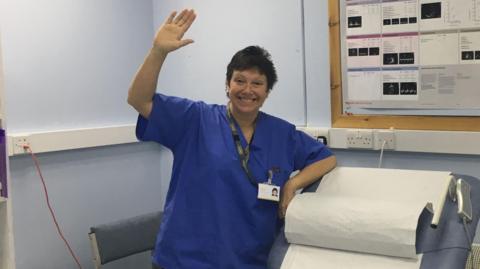Alix Harvey, a 35-year-old marine biologist from Plymouth, welcomed the move to increase access to the weight-loss drug.
She started taking Mounjaro in May after struggling with weight gain following the birth of her two children.
"I got to the stage where I went 'if this continues, I'm going to end up morbidly obese in my late 30s'," she said.
In the last six months, her body mass index (BMI) has fallen from 32 to 22, while she has lost 25% of her body weight.
According to the NHS, those with a BMI of 25 and over are in the overweight range, while those with a BMI of 30 and over are classed as obese.
"It's changed my life... It's completely changed my attitude to food," she said, adding that she also had felt motivated to go to the gym and take up weightlifting.
Because Mounjaro works as an appetite suppressant, she said she struggled to eat more than 1,000 calories initially but the effects had "decreased" and her appetite had increased again.
Ms Harvey has spent about £170 a month on the drug, but said she had saved the same amount in buying less food and drink and planned to stop taking it.
She would not be eligible for the drug under the NICE guidelines, which stipulate that Mounjaro will be offered to people with a BMI of more than 35 and at least one obesity-related health problem.
But she believes rollout should be gradual to ensure support is in place alongside the drug, which carries the risk of users putting the weight back on once they stop taking it.
"It's not a quick fix," she said. "Having that maintenance plan for afterwards for supporting people to keep that weight off afterwards is really vital."


